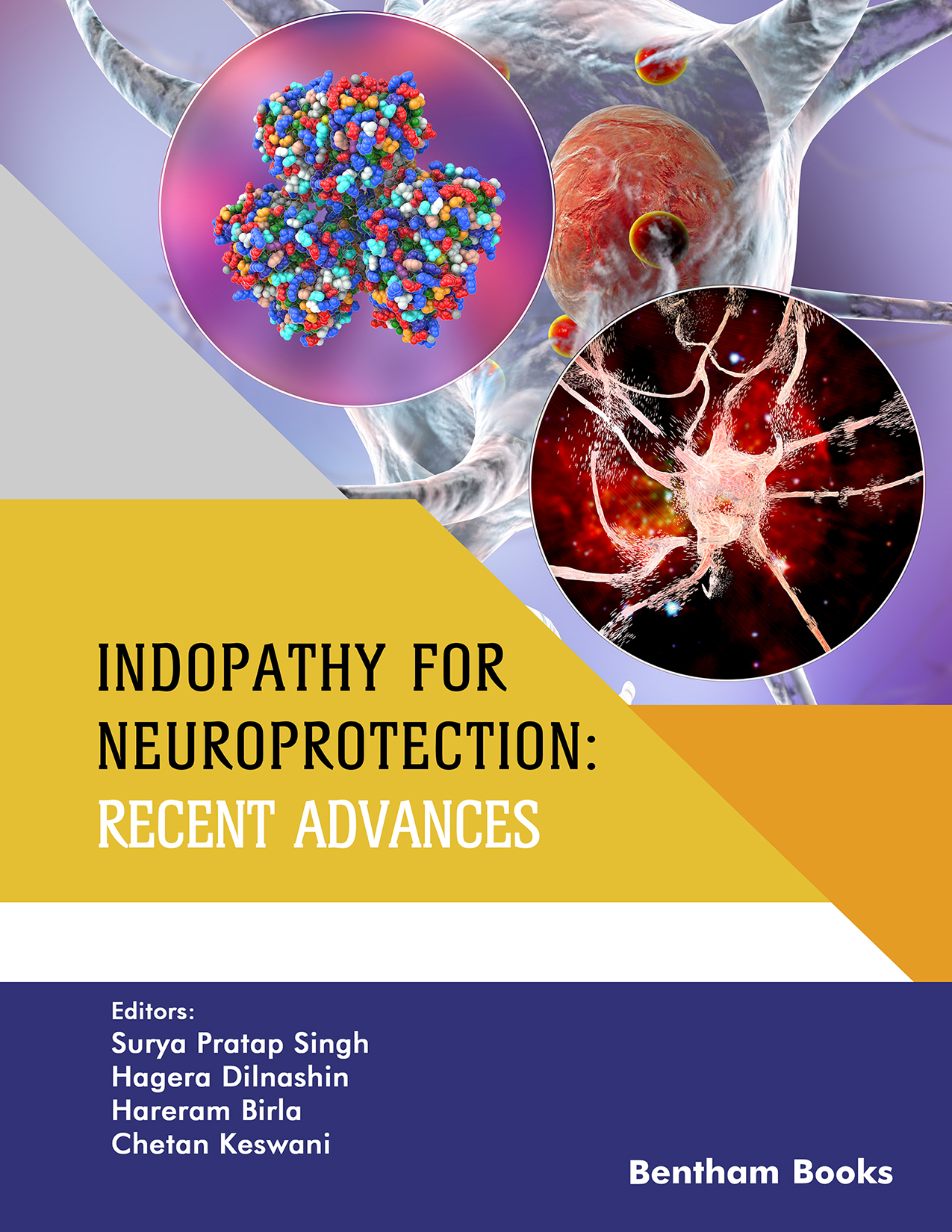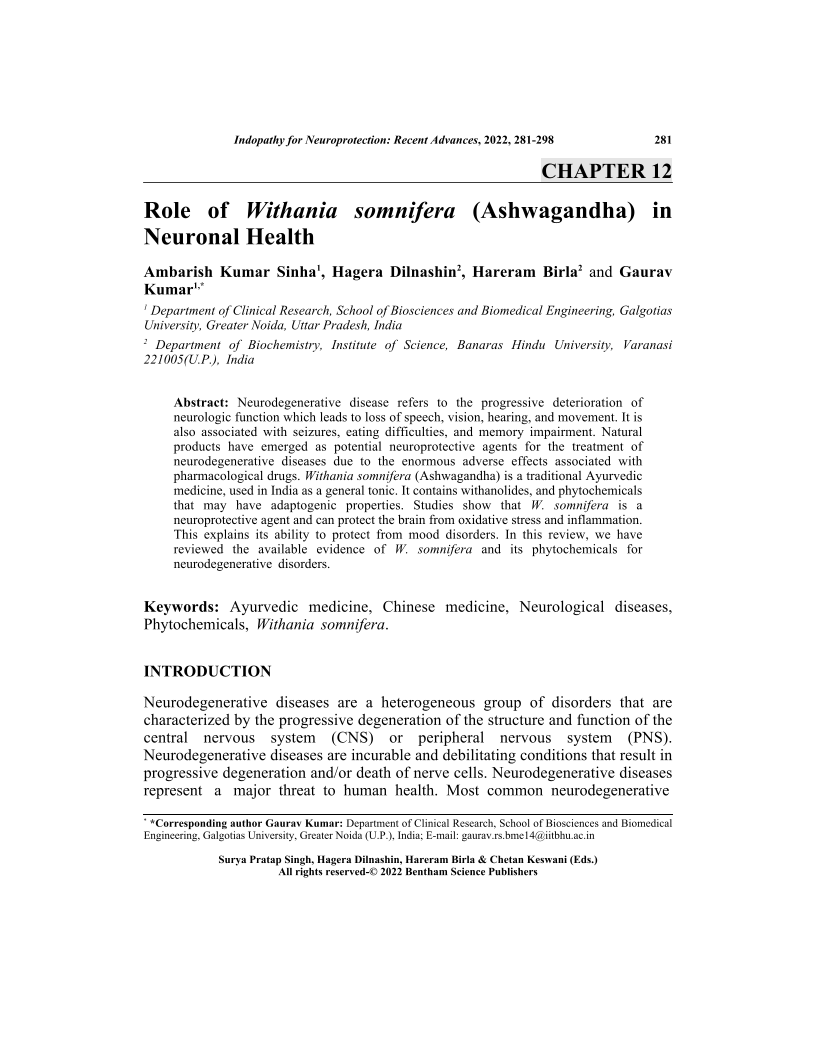Role of Withania somnifera (Ashwagandha) in Neuronal Health

- Authors: Ambarish Kumar Sinha1, Hagera Dilnashin2, Hareram Birla3, Gaurav Kumar4
-
View Affiliations Hide Affiliations1 Department of Clinical Research, School of Biosciences and Biomedical Engineering, Galgotias University, Greater Noida, Uttar Pradesh, India 2 Department of Biochemistry, Institute of Science, Banaras Hindu University, Varanasi 221005(U.P.), India 3 Department of Biochemistry, Institute of Science, Banaras Hindu University, Varanasi 221005(U.P.), India 4 Department of Clinical Research, School of Biosciences and Biomedical Engineering, Galgotias University, Greater Noida, Uttar Pradesh, India
- Source: Indopathy for Neuroprotection: Recent Advances , pp 281-298
- Publication Date: December 2022
- Language: English
Role of Withania somnifera (Ashwagandha) in Neuronal Health, Page 1 of 1
< Previous page | Next page > /docserver/preview/fulltext/9789815050868/chap12-1.gif
Neurodegenerative disease refers to the progressive deterioration of neurologic function which leads to loss of speech, vision, hearing, and movement. It is also associated with seizures, eating difficulties, and memory impairment. Natural products have emerged as potential neuroprotective agents for the treatment of neurodegenerative diseases due to the enormous adverse effects associated with pharmacological drugs. Withania somnifera (Ashwagandha) is a traditional Ayurvedic medicine, used in India as a general tonic. It contains withanolides, and phytochemicals that may have adaptogenic properties. Studies show that W. somnifera is a neuroprotective agent and can protect the brain from oxidative stress and inflammation. This explains its ability to protect from mood disorders. In this review, we have reviewed the available evidence of W. somnifera and its phytochemicals for neurodegenerative disorders.
-
From This Site
/content/books/9789815050868.chap12dcterms_subject,pub_keyword-contentType:Journal -contentType:Figure -contentType:Table -contentType:SupplementaryData105

